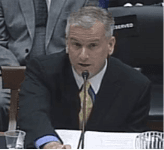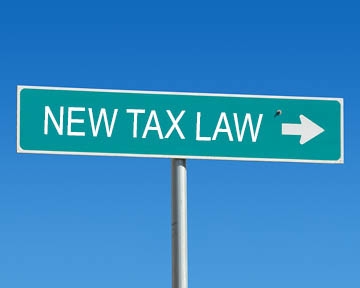UPDATE - GOVERNOR SIGNS ECONOMIC NEXUS LEGISLATION! READ ABOUT IT HERE!
Florida is officially the last state (with a sales tax) to not implement economic nexus legislation, which is about to change on July 1, 2021. As of the publication of this article, there are two sister bills before the Florida Senate and House focused on implementing both economic nexus and marketplace facilitator laws that would require out-of-state (remote) sellers to collect sales tax on sales into Florida or the “marketplace provider,” such as Amazon, to collect sales tax for the out of state, remote seller.
This type of economic nexus legislation surfaced two times in Florida but gained no traction since the US Supreme Court’s 2018 earth shattering Wayfair opinion, primarily because many legislators ran on “no new tax” campaigns and worried that this type of legislation would be perceived as a “new tax” by the voters (even though those voters were always subject to use tax on their out of state purchases). With a worldwide pandemic having dramatic fiscal impact on Florida’s tax revenue, these legislators are singing a different tune as evidenced by a 11 to 0 favorable vote by the Senate Commerce and Tourism committee on January 25th. This article will provide summary analysis of the Florida Senate bill in its current form and point out a few differences in the House bill. A copy of both bills may be downloaded at the end of this article.
The most relevant parts of the Senate Bill 50 are as follows:
- Amends the Mail Order Nexus statute (implemented in 1987) to say remote sellers that have enough economic activity in the state will be deemed Florida dealers required to collect and remit Florida sales tax on goods (not services) delivered to a customer in Florida.
- The threshold of economic nexus will be $100,000 of sales during the previous calendar year (with 2020 as the initial threshold year).
- Sales made through and taxed by a Marketplace Provider do not count towards the $100,000 economic nexus threshold and should not be reported as sales by the remote seller.
- There is no threshold of minimum number of tractions to create nexus, so 10,000 items sold into Florida for $5 per unit would not trigger economic nexus
- A “Marketplace Provider” is subject to the sales tax collection and remittance requirements imposed on dealers in Florida.
- A Marketplace Provider is defined as a person who facilitates a retail sale by a marketplace seller by listing or advertising for sale by the marketplace seller tangible personal property in a marketplace, and who directly, or indirectly through agreements or arrangements with third parties, collects payment from the customer and transmits the payment to the marketplace seller, regardless of whether the marketplace provider receives compensation or other consideration in exchange for its services.
- Very notable exclusions from industries held to be Marketplace Providers are:
- Any person who solely provides travel agency services
- A delivery network company making only local deliveries (75 miles or less), unless the company agrees to collect sales tax
- A payment processor business whose sole activity with respect to the marketplace is to handle payment transactions between the marketplace seller and customer.
- The Florida Department of Revenue has the right to audit the Marketplace Provider, but it is relieved of tax liability if the Marketplace Provider demonstrates that it made reasonable efforts to obtain accurate information related to the retail sales, but the failure to collect and pay the correct amount of tax imposed under this chapter was due to incorrect or incomplete information provided by the marketplace seller.
- The Marketplace Provider has the right to recover state imposed tax, interest, and penalties from the Marketplace Seller if incomplete or inaccurate information is provided to the Marketplace Provider.
Notable difference in House Bill 15:
- Conducting 200 or more remote sales of tangible personal property into Florida during the previous calendar year is enough to create nexus.
Based on every source we hear from, it is predicted that Florida will adopt economic nexus and marketplace facilitator legislation this 2021 legislative session. If you or your client is a remote seller, then I would strongly suggest both getting ready for the Florida sales tax collection process and, even more importantly, reviewing your current connections with Florida. Our law firm has been engaged by many companies to deal with concerns over economic nexus in remote states. When digging into the details, most of these companies had the same glaring problem – the company was unaware they already had substantial nexus with the remote states years before the Wayfair decision came out. This is a very costly problem because the process of registering to collect sales tax in a new state is designed to determine whether your company already had nexus prior to registering. More troubling is the fact that a company has no statute of limitations protections from a state going back in time if no sales tax returns have been filed. The following is a short list of pre-Wayfair nexus generating activities that still apply even after economic nexus laws are passed:
- Holding inventory in Florida (such as through Amazon FBA)
- Sales people in Florida
- Hiring subcontractors to do warranty work
- Remote employees in Florida
- Company owners or officers owning property in Florida
- Subsidiary or affiliated company having nexus with Florida
If your company or your client is worried about pre-Wayfair nexus activities, then a voluntary disclosure might be a very good solution to limit the company’s liability and cut off the lookback period to 3 years. To date, we have found the Department of Revenue has been willing to work with remote sellers through the Voluntary Disclosure program. If you have any questions about nexus for past activities or the implications of the bill on future activity, then please do not hesitate to contact our firm for a free initial consultation.
If your company or client is potentially a marketplace provider under this legislation, then you really need to be planning for this statute to pass now. Marketplace providers will be expected to be up and running on the day the statute is implemented, July 1, 2021. Unlike what South Dakota argued to the US Supreme Court in the Wayfair case, this will be dramatically more involved than just flipping a switch. Your company will need to have all the systems in place to determine what is and what is not taxable in Florida. You will also need to have a system in place for excepting the different types of exemption certificates both for different types of products and different types of exempt purchasers.
 About the author: James Sutton is a Florida licensed CPA and attorney as well as a partner in Moffa, Sutton, & Donnini, PA. Mr. Sutton is charge of the Tampa office of the firm and practices almost exclusively in the area of Florida Sales & Use Tax Controversy. Mr. Sutton handles audits, protest, litigation, criminal cases, revocations, collections, and consulting engagements all in the area of sales tax. Mr. Sutton is an active member in the FICPA, AICPA, AAA-CPA, and FIADA. Mr. Sutton is also the State and Local Tax Chairman for the AAA-CPA and president of the Florida AA-CPA. Most notable to this article, Mr. Sutton was the lead author on an amicus brief filed in the US Supreme Court on behalf of the AAA-CPA in the SD v Wayfair case and attended oral arguments for the case. If you are interested in learning more about Florida sales tax from Mr. Sutton, you can find his speaking engagements around the state HERE. Otherwise, you can learn more about Mr. Sutton in his firm bio HERE.
About the author: James Sutton is a Florida licensed CPA and attorney as well as a partner in Moffa, Sutton, & Donnini, PA. Mr. Sutton is charge of the Tampa office of the firm and practices almost exclusively in the area of Florida Sales & Use Tax Controversy. Mr. Sutton handles audits, protest, litigation, criminal cases, revocations, collections, and consulting engagements all in the area of sales tax. Mr. Sutton is an active member in the FICPA, AICPA, AAA-CPA, and FIADA. Mr. Sutton is also the State and Local Tax Chairman for the AAA-CPA and president of the Florida AA-CPA. Most notable to this article, Mr. Sutton was the lead author on an amicus brief filed in the US Supreme Court on behalf of the AAA-CPA in the SD v Wayfair case and attended oral arguments for the case. If you are interested in learning more about Florida sales tax from Mr. Sutton, you can find his speaking engagements around the state HERE. Otherwise, you can learn more about Mr. Sutton in his firm bio HERE.
At the Law Office of Moffa, Sutton, & Donnini, PA, our primary practice area is Florida taxes, with a very heavy emphasis in Florida sales and use tax. We have defended Florida businesses against the Florida Department of Revenue since 1991 and have over 100 years of cumulative sales tax experience within our firm. Our partners are both CPAs/Accountants and Attorneys, so we understand both the accounting side of the situation as well as the legal side. We represent taxpayers and business owners from the entire state of Florida. Call our offices today for a FREE INITIAL CONSULTATION to confidentially discuss how we can help put this nightmare behind you.
AUTHORITY
Senate Bill 50
South Dakota v. Wayfair, 585 U.S. _____ (June 21, 2018).
Section 212.05, F.S., Sales, storage, use tax.
ADDITIONAL RESOURCES
FLORIDA SALES TAX INFORMAL WRITTEN PROTEST, published November 17, 2018, by James Sutton, C.P.A., Esq.
SHIPPING: AN OVERLOOKED FLORIDA SALES TAX EXEMPTION, published September 12, 2019, by Jeanette Moffa, Esq.
FLORIDA - ECONOMIC NEXUS & MARKETPLACE FACILITATOR BILL IINTRODUCED, published February 20, 2019, by James Sutton, C.P.A., Esq.
POST-WAYFAIR - CAN YOU AFFORD TO WAIT TO REGISTER, published August 8, 2018, by James Sutton, C.P.A., Esq.
FLORIDA SALES TAX - VOLUNTARY DISCLOSURE PROGRAM, published April 9, 2018, by Jeanette Moffa, Esq.
FLORIDA USE TAX AUDIT LETTER?, published June 14, 2015, by James Sutton, CPA, Esq. and Jerry Donnini, Esq.
GO TO JAIL FOR NOT PAYING FLORIDA SALES TAX?, published November 3, 2013, by James Sutton, CPA, Esq.
